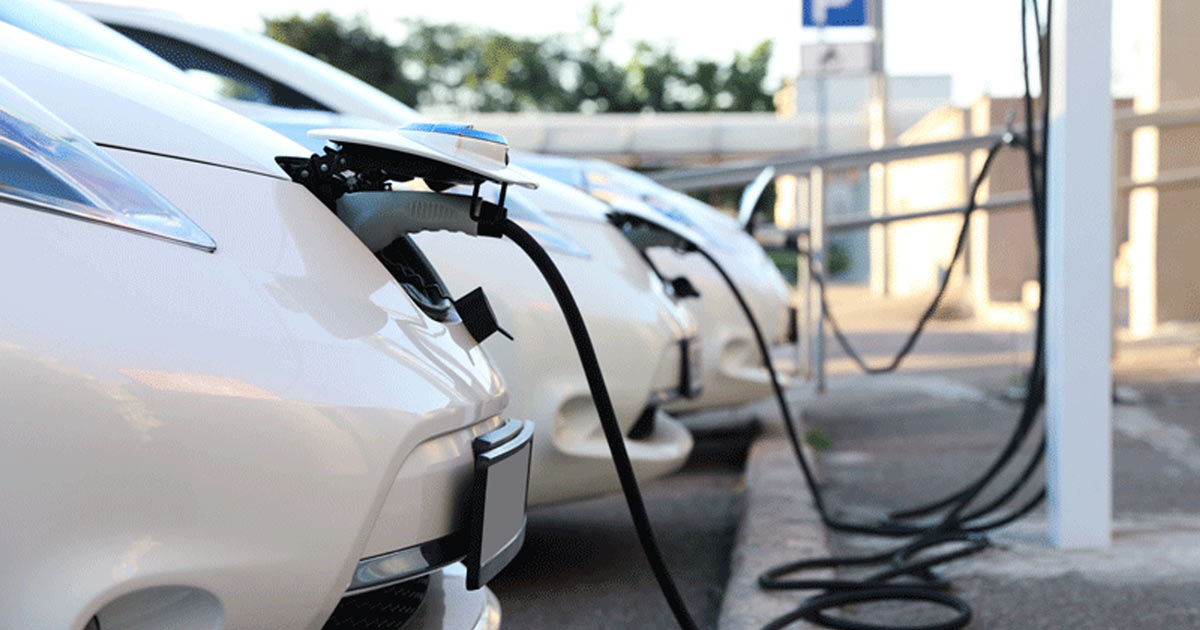How the Illinois Electric Vehicle Charging Act is Impacting Residential Real Estate
The State of Illinois recently adopted the “Electrical Vehicle Charging Act” (the Act) which was signed by Governor J.B. Pritzker and becomes effective January 1, 2024. The Act requires all newly constructed single-family residences and small multi-family residences (consisting of two to four units) to have at least one “EV-capable” parking space available for each residential unit that has dedicated parking.[1] An “EV-capable” parking space is defined as a parking space that has electrical panel capacity and conduit installed during construction to support the future installation of an electric vehicle charging station. The stated intent of the Act is to make electrical vehicle charging facilities available for present or future use. Accordingly, owners of newly constructed single-family residences and small multi-family residences must install the underlying electric vehicle infrastructure even if there is no present intent to install an electric vehicle charging station.
The Act further requires all building permits issued within 90 days after the January 1, 2024 effective date in connection with newly constructed, large multi-family residences (consisting of five or more units) to make all of its parking spaces EV-capable. This requirement also includes existing multi-family buildings consisting of five or more units that are being “renovated” by a developer converting a property to a condominium or common interest community property. The Act does not include a definition of “renovated,” so it is unclear what level of renovation would be necessary to subject a conversion to the requirements of the Act. However, the Act also specifies that a large multi-family renovation is not subject to the Act if making parking spaces EV-capable would require excavation of existing surfaces.
Under the Act, an individual unit owner shall have the right to install EV-charging facilities for the unit owner’s personal use, subject to reasonable restrictions imposed by the Association. The Association is obligated to process and approve applications for installation of EV-charging stations in the same manner as it processes and approves alterations or improvements of common areas/elements of the property. The approval must be issued within 60 days. If the EV-charging station is to be located within the common elements (including limited common elements) of the condominium/common interest property, the Act requires the unit owner and Association to enter into a license agreement. There are a number of other requirements imposed upon the unit owner in the association review and the installation of the facilities, including, architectural approval, insurance coverage, and retention of a licensed and insured electrical contractor to perform the work. All costs associated with the installation (including reimbursement of costs incurred by the Association) are the unit owner’s responsibility. The Association also has the right to pass-through charges for electricity consumed on account of the EV-charging station, either in the form of charges tracked through a separate meter or an estimate of the monthly costs.
The Act also vests tenants of rental properties subject to the Act with similar rights and obligations of unit owners in condominium and common interest community properties to install EV-charging stations. The Act permits landlords to impose certain fees to recover expenses connected with a tenant’s installation of these facilities.
It is important to note that future condominium/common interest community declarations will need to include provisions reflecting the Act, including the rights and obligations of the parties related to installation and operation of EV-charging facilities. Additionally, landlords will need to consider implementing lease provisions governing the rights and obligations of tenants electing to install EV-charging facilities under the Act. We strongly recommend consulting with legal counsel to address these issues before they arise.
Finally, the Act does not cover the rights of owners and renters of existing muti-family buildings and condominium/common interest community properties. Nevertheless, the Act’s new construction requirements serve as an excellent template for existing building owners and Associations to establish rules and procedures governing the installation of facilities to make existing parking EV-capable. Once again, we recommend consulting with legal counsel when establishing rules and amending Association documents.
For further information regarding the Electric Vehicle Charging Act or condominium/multi-family residential leases, please contact: Jeffrey M. Galkin or call 312-368-0100.
[1] The Act imposes a lower threshold and timeline for the availability of EV-capable parking spaces in newly constructed, large multi-family affordable housing buildings.



